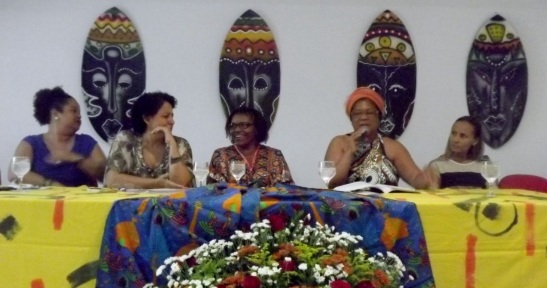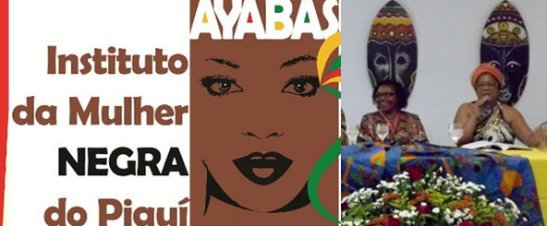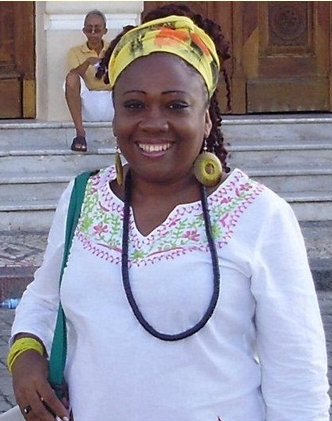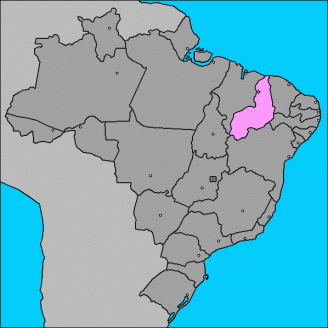Organization emphasizes growing concerns about the health of black women; thesis focuses on black woman’s ability to cope with the challenges posed by prejudice
Growing concerns about the health of black women in the state of Piauí (1)
Black women develop specific health problems, diseases are inherent to the genes of ethnicity, combined with racism
What’s different about the health of black women? It’s the first question when discussing the health and conditions of this parcel of the population.
For the president of the Instituto da Mulher Negra do Piauí (Black Women’s Institute of Piauí – Ayabás – Halda Regina, black women suffer at least two types of prejudice, racial and gender, where she considers that there is a significant difference between black and non-black women, especially in quality of physical and mental health.
“Obviously, this social difference directly affects the health of black women. We black women are prone to under high pressure, also because of our condition: unemployment, heads of households, social condition, difficulties in ascension, among others, besides the very violence suffered by black women in their work environment (harassment), terrible service in health, and at the time of pregnancy, when at the moment of delivery, according to the reports of some women, care for them is time consuming, because of the stigma that we are stronger and more resistant to pain.”
Improprieties such as these are ignored because of a false sense of equality, as the question that initiates this matter. Black women’s health is directly related to racism and especially the institutional type, still according to the president of Ayabás.

Black Women’s Institute of Piauí – AYABÁS hosts the First State Seminar of Black Women and Health in June (Instituto da Mulher Negra do Piauí – AYABÁS, o I SEMINÁRIO ESTADUAL DE MULHERES NEGRAS E SAÚDE)
“Many women need to impose themselves daily to combat racial and gender discrimination and to ensure to black women decent health care.”
Besides the institutional abandonment, there are risks of major physical illnesses in this population, such as hypertension, sickle cell anemia, cervical cancer, breast cancer, diabetes, pelvic inflammatory disease, systemic lupus erythematosus, myomas or fibroids.
Difficulties in health care
“One of the difficulties is to guide these women in order to denounce the practices of racial discrimination in health services and train health professionals on the topics of race, gender and health from the perspective of human rights,” says Halda Regina.
There are no public policies directed in Piauí or in Teresina (state capital), nor data on the health situation of black women in Piauí. What is known is that currently one of the main problems of women is the violence to which they are subjected, be it sexual or psychological aggression.
“At the national level there are policies for the black population, besides decrees which point to each state to create a technical committee of health of the black population, so that there is efficiency in actions for this purpose.
The creation within the Departments of Health to coordinate a team of equity, where the policy is located. Some booklets have been published by the Ministerio da Saúde (MS or Ministry of Health) along with the Secretaria Especial de Politicas de Promoção da Igualdade Racial (SEPPIR or Special Secretariat of Policies for the Promotion of Racial Equality). But many women continue dying for lack of care, training and information,” explains Halda Regina.
About creating of exclusive policies in Teresina, Councilwoman Rosário Bezerra, who has a great representation in this discussion within the capital, explains that there is still nothing specific, but that discussions have started.
“We’re conducting seminars with entities linking the health of black women to the development of specific projects, because there are racial specificities and diseases that take greater effect on black women. This woman is served in health facilities with another look.
She is not considered as she should and does not receive the attention she deserves. The diagnosis is not always thorough and queries are made more quickly than the others, without the same concern,” she emphasizes.
Afroresiliências and psychological health
Afroresiliência, a neologism created by the teacher and psychologist Luciênia Martins in the development of her doctoral thesis Afrorresilientes: a resiliência de mulheres afrodescendentes de sucesso educacional (Afro-resilience: the resilience of African descendant women of educational success), having as the principal problem the black woman’s ability to cope with the challenges posed by prejudice.
“To study resiliency in women of African descent is an attempt to systematically meet the psychological factors that promote the overcoming situations of adversity. According to figures from the IBGE (Instituto Brasileiro de Geografia e Estatística or Brazilian Institute of Geography and Statistics), these obstacles are not few.
Afroresiliência explores a relevant topic and recent area of Psicologia Positiva (Positive Psychology), focused on the perspective of women of African descent in Teresina. “Although not known to many, resilience is experienced in one form or another, by each of us,” explains the researcher Lucienia Martins.
The psychological factor is another important point of discussion about women’s health in the black population. Besides socioeconomic conditions, greater propensity to disorders of a genetic order, imposed violence gradually affects mental health. The psychologist and researcher Lucienia highlighted this aspect more in her study.
“In regard to emotional health, they are ones that suffer most from domestic violence, engage in risky situations because of the secularly institutionalized lack of opportunity.
Even with advances for the next generation after years of a flagitious slavery, there are still many consequences that need to be repaired. The study of resilience is an excellent psychological defense against aggression imposed by a contemporary racist society, without mixing it up with insensitivity or conformism, or even with resignation.
This implies that resilience in the lives of these women “should be perceived as a process for growth, positivity, or better yet, of strengthening for stressful situations that will happen,” she affirms.
Source: Meio Norte
Notes
1. Piauí is a state located in northeastern Brazil



Nenhum comentário:
Postar um comentário